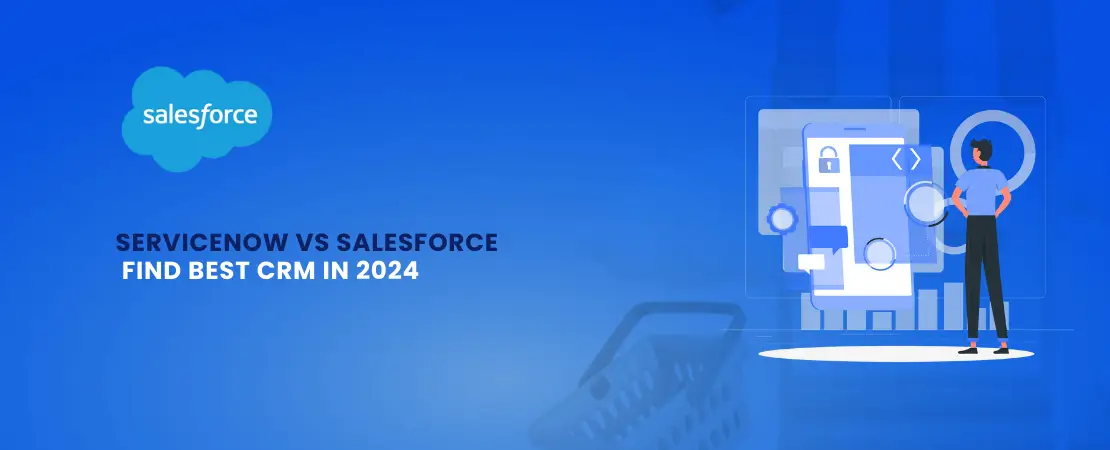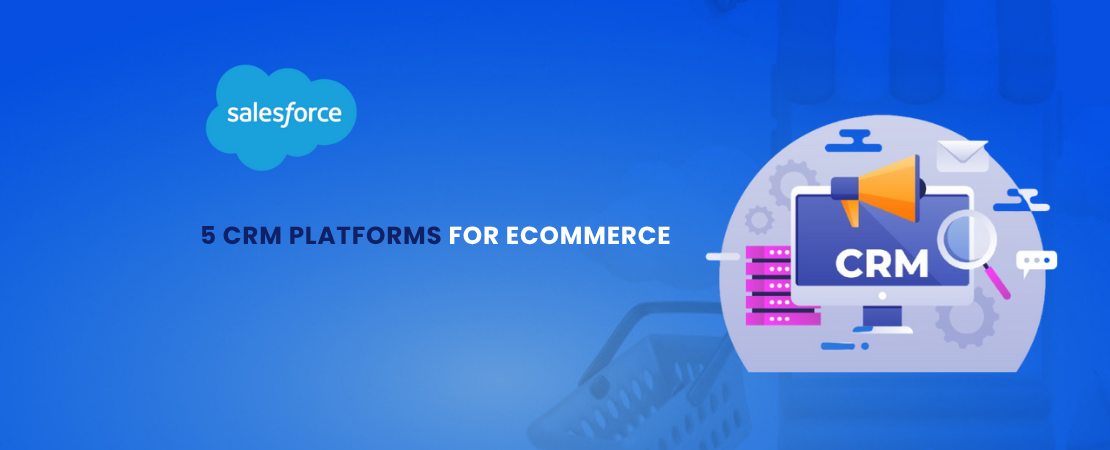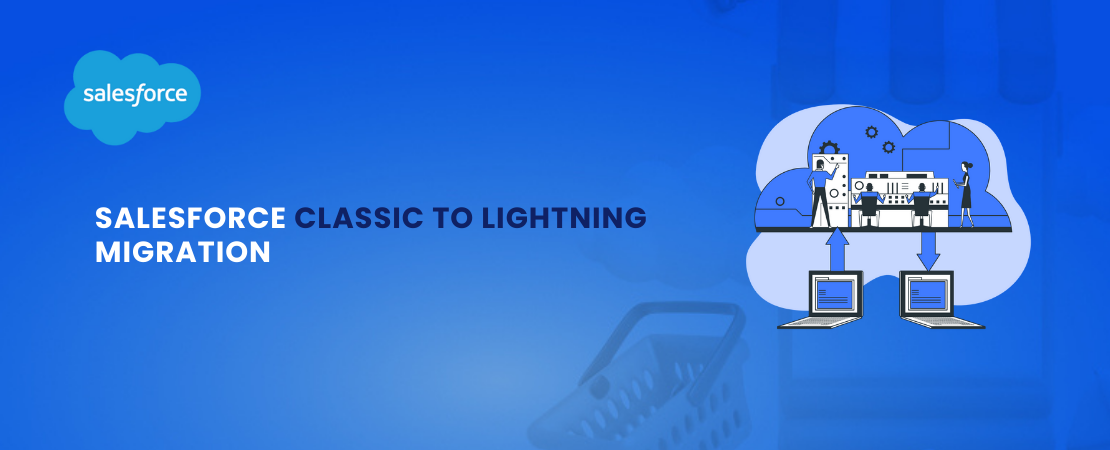ServiceNow Vs Salesforce: Find Best CRM in 2025
How do popular cloud platforms like ServiceNow vs Salesforce differentiate from each other? Which one is the best fit for your requirements? Let’s find out in this comparison guide for ServiceNow CRM vs Salesforce.
ServiceNow Vs Salesforce: Key Highlights
- Core Focus: ServiceNow is great for IT management. Salesforce excels in CRM for sales and service.
- Customer Service: ServiceNow integrates well with IT operations. Salesforce offers advanced customer support tools.
- Customization: ServiceNow allows custom apps and scripts. Salesforce has many options via AppExchange and APIs.
- Pricing: ServiceNow prices by modules and users. Salesforce uses tiered pricing with added costs for extra features.
Overview of ServiceNow vs Salesforce
Do you think that a company’s ability to succeed solely rests on the quality of its goods or services? A great product will increase sales, earnings, and word-of-mouth, but more is needed to propel your business to the top.
Additionally, you must devote time and effort to establishing and preserving rapport with your clients. After all, they are the ones who purchase your goods, wait in line for more purchases, and encourage others to follow suit.
But it’s not easy to maintain these ties when you have thousands of consumers. Manual labor and a haphazard approach are not acceptable.
Customer relationship management (CRM) platforms, such as ServiceNow vs Salesforce, can help with that.
Comparison of ServiceNow and Salesforce
ServiceNow is an enterprise-level CRM platform that emphasizes IT service management (ITSM) and IT operations management (ITOM). It facilitates the automation and simplification of IT operations for businesses, which eases the management of incidents, issues, modifications, and service requests.
With the addition of an automated and integrated approach to corporate service management, ServiceNow’s capabilities have grown. In addition to IT Service Management, IT Operations Management, and IT Business Management, its key solutions also cover Customer Service Management, Human Resources, and more.
With ServiceNow’s many features, companies can better understand their customers, combine internal and external-facing operations, and conveniently handle workflows across the entire organization in one location.
ServiceNow vs Salesforce: Core Functionalities
ServiceNow is a cloud-based platform that is an IT Service Management tool. It has, however, extended functionalities beyond ITSM that represent Enterprise Service Management as a full-fledged platform. At the very core of ServiceNow’s functionality lies:
IT Service Management
ServiceNow’s ITSM functionality is oriented toward automating IT processes by providing a single platform for incident, problem, change, and request management. It allows standardizing service delivery and enabling problem fixing at an accelerated rate.
IT Operations Management
This maintains the availability and performance of the IT infrastructure. It consists of event management, operational intelligence, and orchestration.
IT Business Management
ITBM helps bridge the gap between IT services and business goals; it provides project and portfolio management, application portfolio management, and financial management modules.
Security Operations
ServiceNow provides a platform that integrates security incident, vulnerability, and security operations management, acting as countermeasures for cyber attacks.
HR Service Delivery
ServiceNow has human resources service delivery solutions that allow organizations to automate many human resources operations, including employee onboarding, case management, and service delivery.
Salesforce is the world’s unrivaled customer relationship management platform. The company, however, has increased its offerings to cover a wide array of functionalities seeking to enhance customers’ experience, sales, and service delivery. The basic functionalities of Salesforce include:
Sales Cloud
Salesforce Sales Cloud is cornerstone, delivering a comprehensive suite of tools for managing the sales process from lead generation to deal closing. Among its features are opportunity management, sales forecasting, and pipeline management.
Service Cloud
Another key product of Salesforce is the Service Cloud, oriented toward customer service. It is equipped with customer support management, case management, and field service to enable organizations to provide personal service to customers through various channels.
Marketing Cloud
Salesforce Marketing Cloud empowers the management and complete automation of marketing campaigns, including those sent via email and social media channels. This helps build personalized marketing experiences and track campaign performance.
Commerce Cloud
Salesforce commerce cloud is a platform that offers a unified experience of e-commerce operations, from online shopping to order management and fulfillment.
Community Cloud
It allows organizations to build branded online communities through which customers, partners, and employees can share information and enable ways to connect.
ServiceNow vs Salesforce: Customer Service Management
ServiceNow CSM connects customer service to the rest of the organization for issue resolution at a better and quicker pace. It provides an overall view of customer issues because it is integrated with IT operations and field service management. Some of the critical features of ServiceNow CSM are:
Omnichannel Support
ServiceNow supports multiple channels, including e-mail, chat, phone, and self-service portals. That means customers can be assisted through any of these channels.
Case Management
This platform is endowed with strong tools that will help customer service agents track customer problems, manage them, and resolve them. It also includes automated workflows to escalate cases when necessary.
Knowledge Management
ServiceNow embeds knowledge management into its CSM offering. Customers can find solutions to common problems on their own via a self-service portal, reducing the burden on customer service agents.
Field Service Management
If customer issues cannot be resolved remotely and on-site support is required, ServiceNow offers field service management tools for dispatching technicians, tracking service requests, and resolving issues in a timely fashion.
Salesforce Service Cloud is a digitally advanced customer solution that provides an organization with tools to address all the customer interactions from different channels. The important features of Salesforce Service Cloud are:
Omnichannel Routing
This feature enables the omnichannel routing of customers’ queries to the right agent for every case, considering skills, availability, and workload.
Case Management
The Service Cloud provides enhanced case management for solving complex customer issues. It allows tracking customer problems and case resolution, including timely updates to customers.
Self-Service Portals
Salesforce gives customers access to self-service portals, where they can access information about answers to their questions, the status of their cases, and other members of the community with whom to collaborate for support.
Field Service Lightning
Salesforce provides Field Service Lightning for companies that require field service support. This helps companies manage field technicians, schedule appointments, and deliver services efficiently.
Einstein AI
Salesforce Einstein AI is Salesforce’s artificial intelligence layer, offering predictive analysis and insights to guide customer service agents in providing more personalized service.
ServiceNow vs Salesforce: IT Operations Management
One of its flagship offerings is the ServiceNow IT Operations Management, designed to help keep an organization’s IT infrastructure healthy. Some key features of ServiceNow ITOM include:
Event Management
It collects and consolidates events from any monitoring tool. IT teams can, in time, identify and respond to critical issues before they impact business operations.
Operational Intelligence
A feature that uses machine learning to analyze IT data, thereby avoiding issues and resolving problems before they occur.
Discovery and Service Mapping
ServiceNow discovery automatically detects and maps IT assets and services into an overall view of the IT environment. It is very important to realize how all the different parts are interrelated and to manage dependencies.
Cloud Management
ServiceNow has built-in capabilities to manage cloud resources, such as provisioning, orchestration, and governance of cloud operations. These capabilities will ensure that the cloud supports the business and that its resources are efficiently used.
Although Salesforce is not primarily considered an IT operations management supplier, the company has several tools and integrations that may prove useful in supporting IT operations, particularly where an organization uses Salesforce as its core CRM platform. Key features include:
Salesforce Shield
A collection of security tools for advanced data protection, observing user activity, and industry regulation compliance. In simple terms, this tool allows for event monitoring, field audit trail, and platform encryption.
AppExchange Integrations
All IT management tools and integrations can be located in Salesforce’s marketplace, the AppExchange. This allows one to extend Salesforce’s power into IT operations.
Einstein Analytics
Even though Einstein Analytics is mostly oriented toward sales and customer service, It can actually be used to track and analyze IT data and provide insights that would be useful for understanding and improving IT operations.
ServiceNow vs Salesforce: Automation and Workflow Capabilities
Because ServiceNow is so flexible, it supports easy configurations and can easily be tailored to meet organizational needs. Some integration capabilities and customization features include:
IntegrationHub
This is a high-level orchestration tool in ServiceNow that offers a rich feature set for connecting with third-party applications and services. The IntegrationHub uses REST, SOAP, or custom API integrations.
Custom Applications
ServiceNow is a platform-as-a-service (PaaS) offering that allows companies to build custom apps on top of the ServiceNow platform, enabling flexibility in meeting unique business requirements.
Service Portal
ServiceNow offers a user interface service for creating custom user interfaces and self-service portals with custom processes.
Scripting and Workflows
ServiceNow can develop scripts and workflows for more complex customizations on different platform aspects, such as managing custom business processes, scripting, and workflow tools and extending the platform’s capabilities.
Salesforce‘s reputation is well-made for being flexible and highly customizable, and it is a favorite for organizations interested in tailoring their CRM to specific business needs. Key features for integration and customization are:
AppExchange: Salesforce’s AppExchange is a massive marketplace that provides thousands of pre-built applications and integrations. Organizations can discover and deploy solutions that further Salesforce’s base features without the necessity of custom development.
Salesforce APIs: Force.com supports various APIs, such as REST, SOAP, Bulk, and Streaming APIs, through which the Force.com platform can easily interface with an external system effectively. The APIs make provisions for data exchange, automation, and integration with other enterprise applications.
Custom Objects and Fields: Salesforce’s main area of flexibility is allowing its users to create custom objects and fields to capture and manage data that may be unique to their business. This flexibility ensures that Salesforce can fit any data model and business process.
Lightning Platform: An element from Salesforce that provides custom application and user interface building programs, including drag-and-drop, custom coding, and responsive capabilities for design.
Visualforce and Apex: Salesforce offers the Visualforce user interface framework and its own Apex programming language to develop custom business logic—all of which allow for deep customization of user experiences within Salesforce.
ServiceNow vs Salesforce: Integration and Customization
With ServiceNow, there are endless possibilities for customization and integration, allowing for considerable flexibility within the platform. The following are some of the main aspects of integration and customization:
Integration Hub
The ServiceNow Integration Hub is a unifying point that provides it and third-party apps and services with a full set of tools for connecting. It supports REST, SOAP, and custom API integrations.
Custom Apps
In addition to the applications, the ServiceNow platform allows any organization to build custom applications of their choice, creating flexibility to meet organizations’ unique business requirements.
Service Portal
Enables the creation of custom user interfaces and self-service portals that cater to a diverse number of use cases.
Scripts and Workflows
ServiceNow provides more capable scripting and workflows, which help empower business logic, deep task automation, and expanded platform capability by developers. This includes server-side scripting and, to an extent, client-side scripting—extending even further into more advanced features under the umbrella of workflow automation.
Flexibility and strong adaptability make Salesforce extremely popular with organizations wishing to customize their instance of CRM to satisfy certain business needs. The main features of integration and customization include:
AppExchange
The AppExchange by Salesforce is a marketplace where hundreds of prebuilt applications and integrations can be obtained. Organizations can find and deploy solutions that extend Salesforce capabilities without the need to develop custom elements.
Salesforce APIs
Salesforce offers a plethora of APIs, including REST, SOAP, Bulk, and Streaming, which a developer can use to integrate the system with any external environment. The various APIs bring any needed data exchange, automation, or integration with other enterprise applications to life.
Custom Objects and Fields
Salesforce allows users to create custom objects and fields to capture data and manage information unique to the business. This ensures that Salesforce accommodates any data model and business process.
Lightning Platform
Salesforce’s Lightning platform provides several tools for developers to build custom applications, components, and user interfaces. These include drag-and-drop tools with custom coding options and responsive design features.
Visualforce and Apex
For deeper customizations, Salesforce provides Visualforce, a framework for building custom UI pages and components, and Apex, a proprietary language for business logic. These tools allow very high levels of customization within Salesforce to be achieved.
ServiceNow vs Salesforce: Pricing and Licensing
Both ServiceNow vs Salesforce are subscription-based modules. The modules and access levels differ in the case of structures depending on the features they accord: ServiceNow adopts modular pricing, whereby customers buy ITSM, ITOM, or HR Service Delivery-related modules.
Although this does provide the flexibility to scale as businesses need, the costs continue to escalate with every additional module added. ServiceNow usually prices by the end-user license, distinguished by service classes that your end user might fall within, depending on how much functionality they consume.
Additional Salesforce Implementation Services costs may be incurred through consulting, customization, and integration. Salesforce offers four editions: Essentials, Professional, Enterprise, and Unlimited.
In contrast, Salesforce has pricing available per user according to the edition chosen, but separate costs might be derived from added features like a Marketing Cloud or MuleSoft integration.
AppExchange allows flexibility in doctoring up the Salesforce application with any add-ons, but these can add to the overall cost. Implementation and support services are another consideration, but in particular, for large enterprises with big needs in both configuration and integration, TCO becomes an important factor in selecting the right tool.
ServiceNow vs Salesforce: Use Cases and Suitability
ServiceNow vs Salesforce target varied business needs, so they are suitable for different use cases based on the organization’s focus. ServiceNow is highly valued due to its value in IT service management, operations management, and enterprise service management.
It has proved very effective in organizations with complex IT environments that require robust incident management tools, change management, and general monitoring of their IT infrastructure.
Aside from IT, ServiceNow can also deliver cross-enterprise service management solutions that extend from human resources and financial and legal to other organizational functions. It is, therefore, an all-around platform for organizations that need to standardize and automate service delivery in different business functions.
On the other hand, Salesforce is a CRM that serves a diversified range of industries, focusing on sales, marketing, and customer service. This solution fits well with any business that wants to improve its customer relationships, optimize sales processes, and enhance customer service operations in general.
Another use case of Salesforce is marketing automation; through tools like Marketing Cloud, this organization manages campaigns and ensures personalization for customers throughout their journey.
Salesforce Commerce Cloud is also applicable to e-commerce and retail businesses, elegantly handling online sales, customer engagement, and order fulfillment. These use cases separately underline how well each platform is aligned with an organizational need and business model.
Salesforce vs ServiceNow: Which One to Choose?
Therefore, the choice between Salesforce vs ServiceNow depends on what your organization requires to realize its strategic goals and operational focus.
ServiceNow, therefore, is good for businesses with an IT core or needing comprehensive IT service management, operations management, or enterprise-wide service delivery.
There are good tools for managing the automation of IT processes, integrating IT with other business functions, and managing service delivery across other departments like HR and finance.
ServiceNow is also very good, especially for organizations in highly regulated industries where security operations are critical.
On the other hand, if your organization is more customer-centric and focused on sales, marketing, and customer service, then Salesforce is your platform. It offers powerful business CRM capabilities to improve customer relationships, smooth sales processes, and improve customer service operations.
Salesforce also really outclasses most other CRMs in marketing automation and e-commerce, so if a company is looking for customer engagement and sales channel optimization, this is the ideal solution.
The choice between ServiceNow vs Salesforce will ultimately depend on a careful analysis of your organization’s needs. Make sure the chosen platform aligns with and supports your business objectives and long-term strategic vision.
Conclusion
The choice between ServiceNow vs Salesforce would then have to be based on your organization’s specific needs and strategic objectives. ServiceNow does IT service management, operations management, and enterprise service delivery, making it ideal for any organization with a complex IT environment looking to focus more on its internal processes.
Conversely, Salesforce stands out as one of the most powerful CRM solutions in customer relationship management, sales, and marketing automation; hence, it would fit best in businesses focused on customer engagement and growth. Additionally, partnering with a Salesforce Consulting Partner can help businesses maximize the platform’s potential by providing tailored solutions and expert guidance.
The crux is that choosing between ServiceNow vs Salesforce depends on your business’s current situation and needs.
FAQs
Can ServiceNow be used as a CRM?
ServiceNow is not a CRM. Salesforce is a dedicated CRM software solution.
Does NASA use ServiceNow?
Yes, NASA uses ServiceNow for its IT management processes and operations.
Is Salesforce part of ServiceNow?
No, it is not. They are two different and competing software solutions.

Hasan Mustafa
Engineering Manager Salesforce at Folio3
Hasan Mustafa delivers tailored Salesforce solutions to meet clients' specific requirements, overseeing the implementation of scenarios aligned with their needs. He leads a team of Salesforce Administrators and Developers, manages pre-sales activities, and spearheads an internal academy focused on educating and mentoring newcomers in understanding the Salesforce ecosystem and guiding them on their professional journey.



